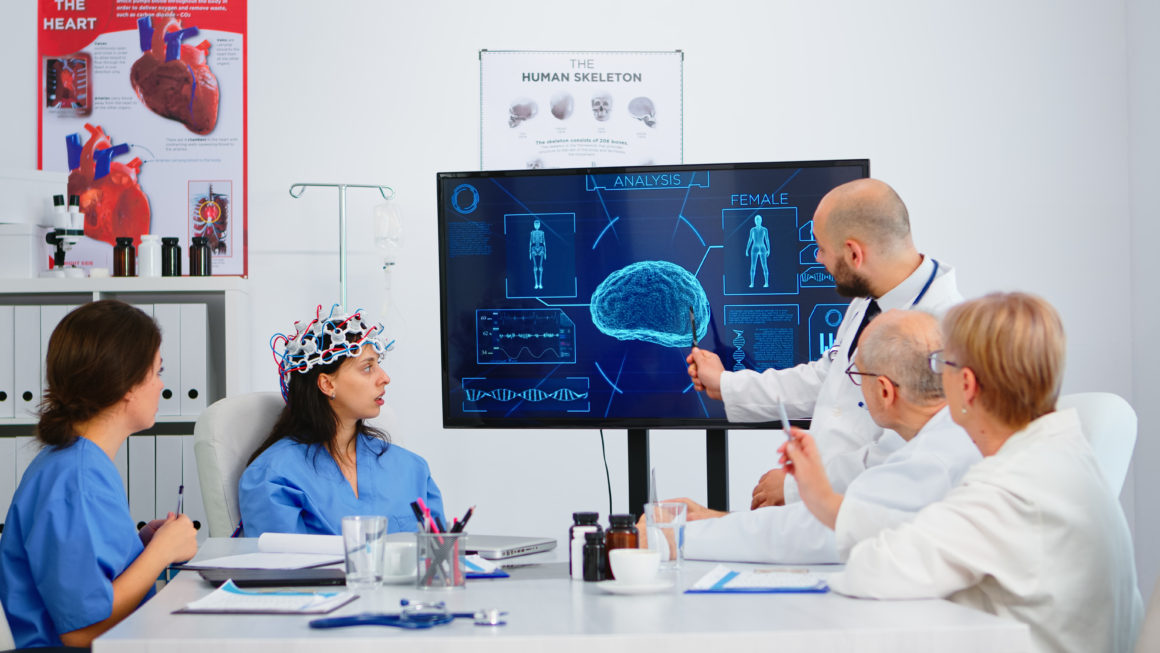Top physicians and researchers presented transformative medical breakthroughs and a new award to recognize innovation in healthcare.
In conjunction with the 2020 Medical Innovation Summit, Cleveland Clinic communicated the Top 10 Medical Innovations for 2021. Now in its 18th year, the annual Medical Innovation Summit will be hosted by Cleveland Clinic Innovations, the development and commercialization arm of Cleveland Clinic.
Those innovative technologies were selected by a committee of Cleveland Clinic subject matter experts, led by Will Morris, M.D., executive medical director of Cleveland Clinic Innovations, and Akhil Saklecha, M.D., managing director of Cleveland Clinic Ventures.
Gene Therapy for Hemoglobinopathies
During the latest research on this disorder, an experimental gene therapy was found that provides the potential ability to produce functional hemoglobin molecules, thereby reducing the presence of sickle cells or ineffective red blood cells in thalassemia to prevent future complications.
Drug for Primary Progressive Multiple Sclerosis
A new FDA-approved therapeutic monoclonal antibody with a novel target is the first and only one for Multiple Sclerosis for the primary-progressive population.
Smartphone-connected pacemaker device.
These implantable devices send electrical impulses to the chambers of the heart muscle to contract and pump blood to the body. By using the new ones from a mobile app patients have a greater understanding of pacemaker health data and directly transmit health information to their physicians.
Cystic fibrosis drug
The new combination drug, approved by the FDA in October 2019, succeeds in providing relief for patients with the most common CF gene mutation (F508 del), which is estimated to account for 90% of people living with the disease.
Universal Hepatitis C Treatment
With the new approved fixed-dose combination drug, the treatment of hepatitis C has been greatly improved. With 90% efficacy for hepatitis C genotypes one through six, the therapy represents an effective option for a broader spectrum of patients.
Bubble CPAP for Increased Lung Function in Premature Infants
b-CPAP is a noninvasive ventilation strategy that delivers continuous positive airway pressure to newborns to maintain lung volumes during exhalation. This avoids the injuries that are often caused during mechanical ventilation.
Increased Access to Telemedicine through New Practices and Policy Changes
The advent of covid-19 caused doctors to have to turn to tele-medical practices and care for their patients virtually, in March state and federal regulators began lowering barriers that used to be in place.
Vacuum-Induced Uterine Tamponade Device for Postpartum Hemorrhage
This method uses negative pressure created within the uterus to collapse the bleeding cavity and cause the muscle to close the vessels, the vacuum-induced device represents another minimally invasive tool for clinicians, treats the complication and also provides a low-tech solution.
PARP Inhibitors for Prostate Cancer
Although known for their success in women’s cancers, two PARP inhibitors have been shown to delay prostate cancer progression in men with refractory cancer and mutations in the DNA repair pathway.
Immunologicals for Migraine Prophylaxis.
As of 2018, new drugs are in the works to help prevent migraine pain, these act by blocking the activity of a molecule called calcitonin gene-related peptide (CGRP), which is triggered during a migraine. This new FDA-approved drug class is the first to be designed specifically for the preventive treatment of migraine.
At the upcoming Medical Innovation Summit, in addition to presenting the annual Top 10 list, Cleveland Clinic will present an award honoring its rich history of innovation and advancements in healthcare delivery.

